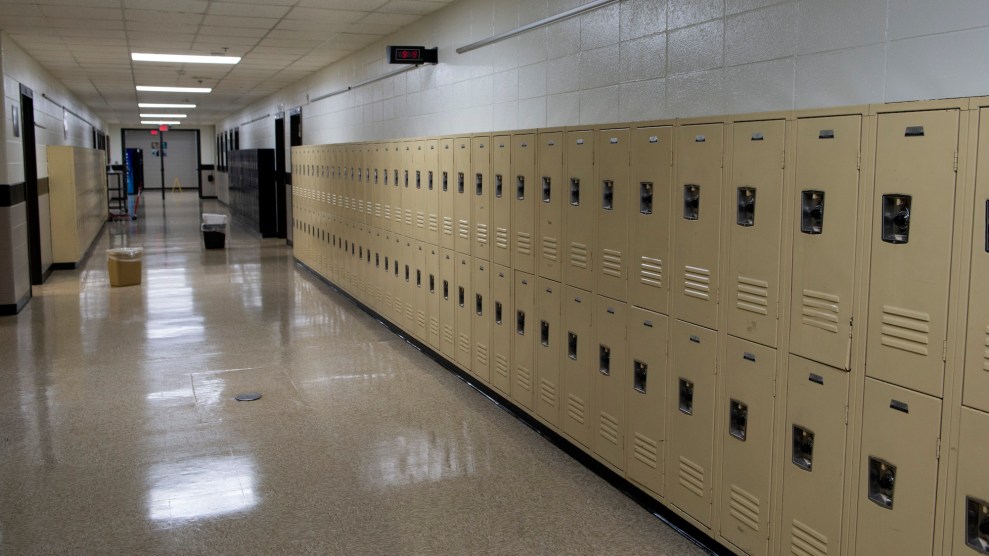
Robin Rayne/Zuma
Update, October 9: Gov. Gavin Newsom signed SB 274, which ends willful defiance suspensions and expulsions for middle and high schoolers until 2029, into law on October 8.
A new bill has reached the desk of California Gov. Gavin Newsom that would bar the state’s public and charter schools from suspending or expelling students in sixth through twelfth grades for “willful defiance,” a largely undefined violation frequently meted out to students of color. The statewide ban, in force until 2029 once signed by Newsom, builds on the state’s efforts to slowly phase out this form of suspension and expulsion. If it’s enacted, California will be the first state to go from using the practice to banning it outright.
Already, in 2014, California became the first state to pass a partial ban on “willful defiance” suspensions—which are permitted in 25 other states, according to research by Temple University’s Policy Surveillance Program. The 2014 ban, which only applied to students in third grade or younger, was followed by a 2019 bill that covered fourth and fifth graders permanently and middle schoolers through 2025. Newsom signed that bill, and appears poised to sign the new, broader ban, but his office hasn’t confirmed if or when that’ll happen.
ACLU California Action, which supports the ban, has said that the definition of willful defiance is too “subjective and overly broad,” with some students being suspended for “dancing, dress code violations, or not paying attention in class.” School officials’ judgment of whether a student is “talking back,” another common ground for willful defiance suspensions, can also be shaped by biases. The bill, introduced by State Sen. Nancy Skinner, does not limit other types of suspensions, such as those related to violence.
At an April hearing of the California Senate’s education committee, Skinner pointed to the use of willful defiance suspensions for small infractions like not taking a hat off or smirking at a teacher. The bill encourages teachers and administrators to de-escalate conflict with students and emphasizes that suspensions are a punishment of last resort.
“I completely appreciate a teacher could have a particularly bad day…this kid sets them off,” Skinner said in the hearing. “But we have other alternatives. We don’t need to kick the kid out.”
More than any other student demographic, Black boys have disproportionately been suspended for “willful defiance.” A 2018 report from San Diego State University’s Black Minds Project and the University of California, Los Angeles’ Black Male Institute, found that two percent of Black male students in California received a defiance-related suspension in the previous school year—more than triple the average rate. Around 17 percent of Black male disabled students in the state were suspended for reasons including defiance during that school year.
Disability Rights California, another group backing the bill, said in a social media post that disabled kids “are routinely suspended for behaviors that manifest from an intellectual, developmental or mental health disability.”
Large school districts in California, including the school systems of Los Angeles, Oakland, and San Francisco, have already eliminated willful defiance suspensions. In 2019, EdSource reported that Los Angeles schools saw a “75 percent drop in suspensions across all categories and a narrowing of racial disparities” six years after enacting their ban—suggesting an improvement to overall school culture.
“We owe it to our communities to support our children and keep them in class, rather than push out our most vulnerable students from our classrooms,” Los Angeles Board of Education member Kelly Gonez said at the time.
















